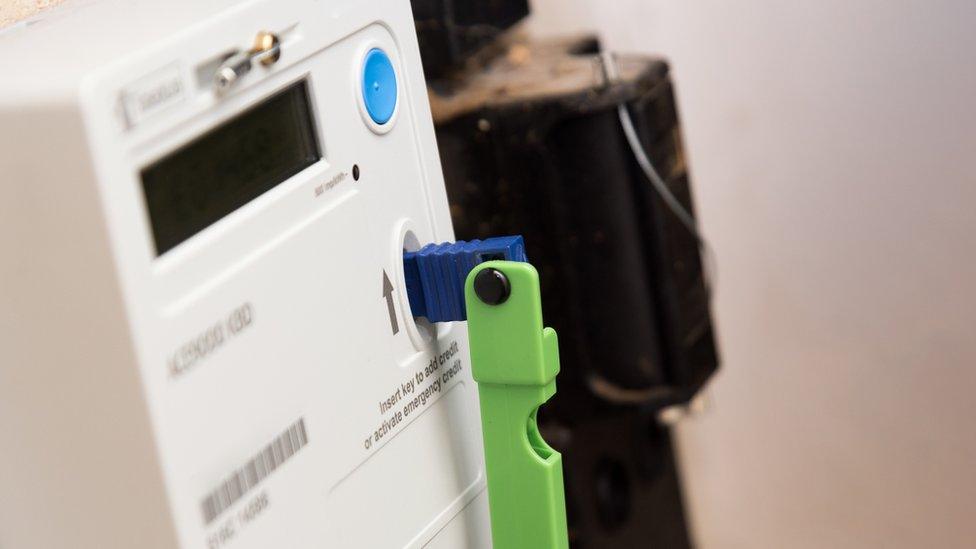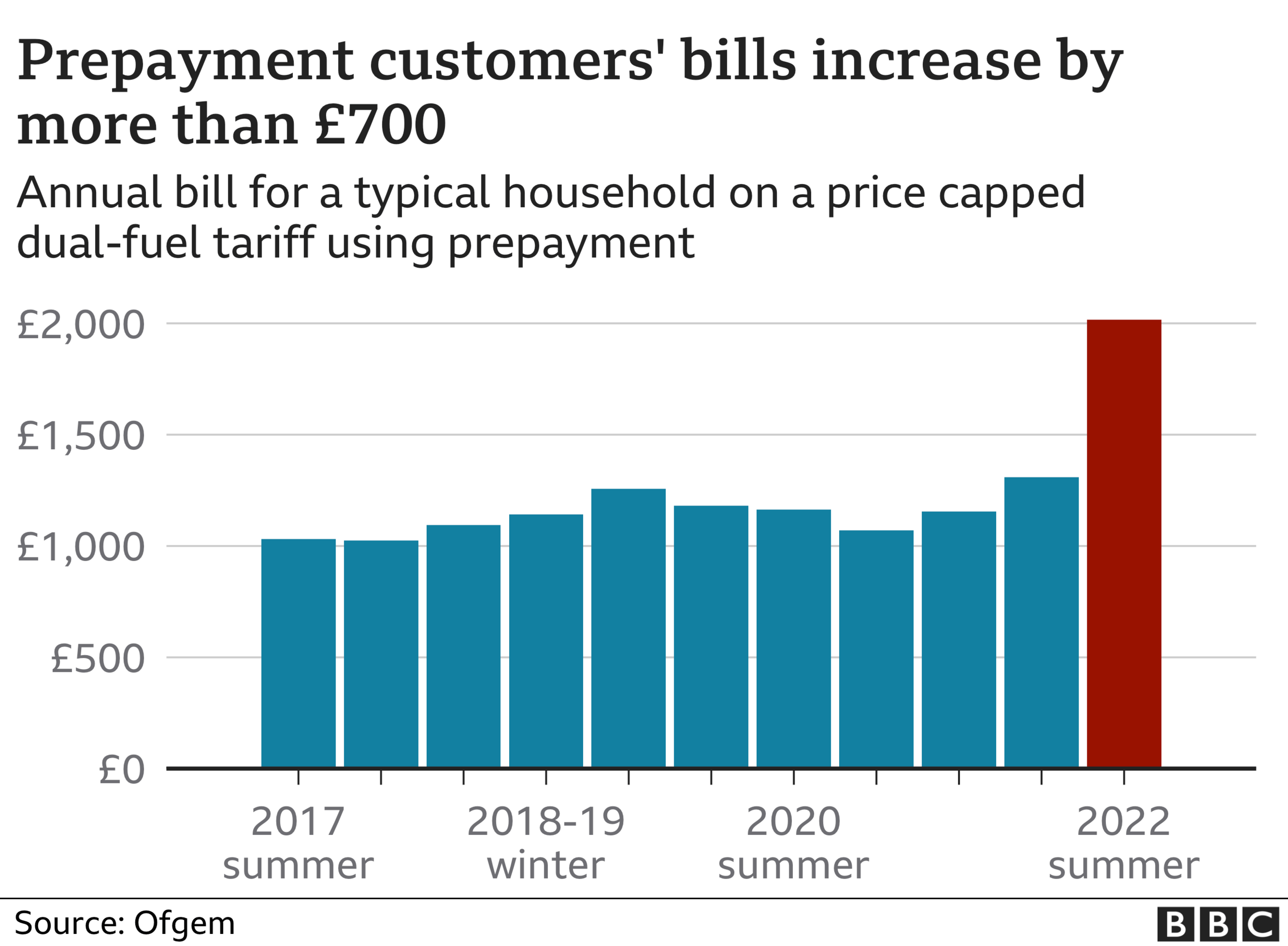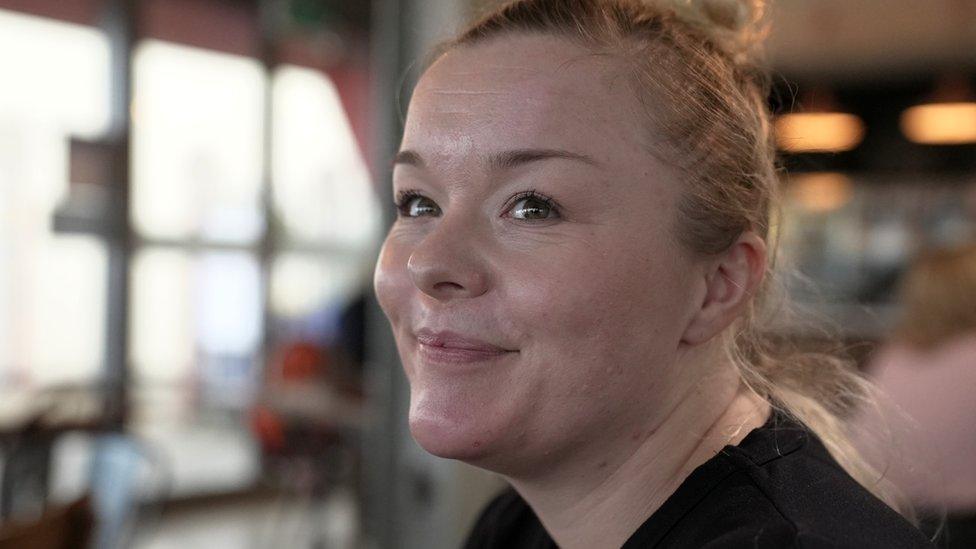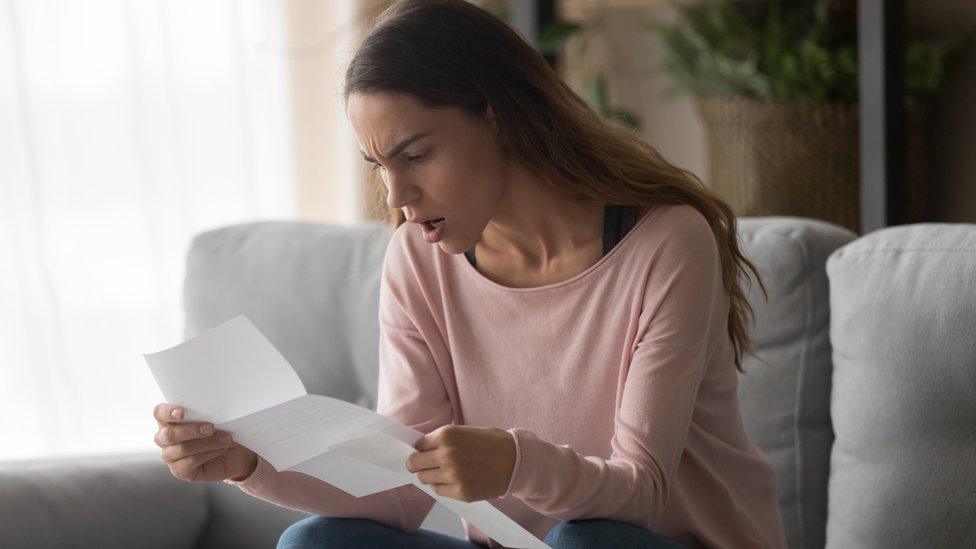Prepayment energy customers feeling the strain
- Published

Pay-as-you-go customers are already going without gas and electricity in greater numbers ahead of big price rises, an energy supply boss has said.
Bill Bullen, chief executive of Utilita, said twice the usual number of prepayment meter customers were "self-disconnecting" when accounts ran dry.
These customers typically face a £708 a year increase in their bill from April, a bigger rise than other households.
Mr Bullen said a "big proportion" would be unable to pay.
"It's going to be tough on an awful lot of families," he said.
He called for specific help for seven or eight million households who were going to be really stretched rather than the government's plan to "subsidise everyone's energy consumption".
Utilita is the leading prepayment energy supplier, with 827,000 customers.
Mr Bullen told the BBC that typically at this time of year, about 2 or 3% of these customers would "self-disconnect", running out of money, but that now stands between 5 and 7%.

Prepayment meters require customers to pay for their energy use in advance, often online, but also from credit bought in convenience stores.
From April, the typical domestic energy bill for 4.5 million prepayment meter customers - often the poorest in society - will go up by £708 a year to a total of £2,017, under the regulator's price cap.

Jennifer Quigley says it's not easy for prepayment customers to shop around
Jennifer Quigley is a prepayment meter customer and has found her top-ups are not going nearly as far. The idea costs could rise more are bringing on a feeling of panic.
"When £10 would've lasted you four or five days, now it's only lasting two or three," she said.
"It's difficult to budget because the changes happen so often. When you're counting pennies and pounds it makes a big difference."
A few years ago, she got into hot water with her credit card bills. At that time, she found the meter useful to help her plan her spending. Now she feels trapped.
"People say shop around, but when you're on prepayment it's not that easy," she said.
"As soon as a company sees you're on a prepayment they go 'oh right well we can't offer you this or that'. It's not any better."
'Fair reflection'
The bill for typical usage on a prepayment meter from April, under the price cap will be £46 more a year than those who pay for their gas and electricity by direct debit. The rise in April is also £15 higher than the £693 rise for the 18 million households not on prepayment meters.
Energy regulator Ofgem's chief executive, Jonathan Brearley, defended the difference in prices.
"Our job is to make sure what the cost is reflected fairly in the bill," he said.
"Prepayment customers do have infrastructure that other customers don't use," he said. "The cost of serving those customers is higher and that's why unfortunately prepayment customers pay more."
When a prepayment meter runs out of credit, most suppliers include a function to add emergency funds.
This amount - typically between £5 and £10 - is automatically added by the customer and repaid as they top up. It means someone's supply should never be cut off, but can also mean they rack up debt.
There are additional voucher schemes in place already that hard-up households can apply for further emergency funding when they cannot afford their bills.
Auriga Services is a private business that provides these vouchers for some suppliers. They have seen demand for vouchers increase 800%, from 1,634 in March 2020 to 14,663 a year later.
British Gas has the highest number of prepayment customers in the UK and they told the BBC they have given out 1,800 Emergency Utility Vouchers this winter. The company's Winter Fund, for those in fuel poverty, still has £1.7m unused for this year and they are urging their customers to contact them if they need help.
The BBC also contacted E.ON, EDF, Ovo-SSE, Octopus and Shell Energy, who have similar emergency credit schemes or funding set aside for customers. All said customers should talk to their supplier if they were worried about their bills.
A spokesperson for HM Treasury said: "We understand that people are concerned about pressures on household budgets which is why the chancellor announced a £9bn package to protect millions against the impact of rising global energy prices."
Chancellor Rishi Sunak unveiled plans to support households, with a £200 reduction, given in October and repaid in instalments from April 2023, as well as an additional £150 council tax rebate for properties in bands A to D in England.
However, the the Institute of Fiscal Studies think-tank described the support as "broad based", adding that there was "little direct targeting of resources on the poorest and those most in need".
Mr Bullen, of Utilita, said the package of measures was not targeted enough, and also failed to recognise specific complications with his customers.
"Customers move house, particularly in the rented sector. You are potentially getting one person seeing the benefit of the £200 subsidy putting the debt on the prepayment meter, and if you change the tenancy someone else ends up picking up the tab," he said.
The Treasury described the policy package as "progressive overall" and said that it would benefit lower-income households the most when it comes to a proportion of their household income.


Are you a pay-as-you-go energy customer who has been going without gas and electricity ahead of the big price rises? Email haveyoursay@bbc.co.uk, external.
Please include a contact number if you are willing to speak to a BBC journalist. You can also get in touch in the following ways:
WhatsApp: +44 7756 165803
Tweet: @BBC_HaveYourSay, external
Please read our terms & conditions and privacy policy
If you are reading this page and can't see the form you will need to visit the mobile version of the BBC website to submit your question or comment or you can email us at HaveYourSay@bbc.co.uk, external. Please include your name, age and location with any submission.
Related topics
- Published3 February 2022

- Published3 February 2022

- Published4 February 2022
